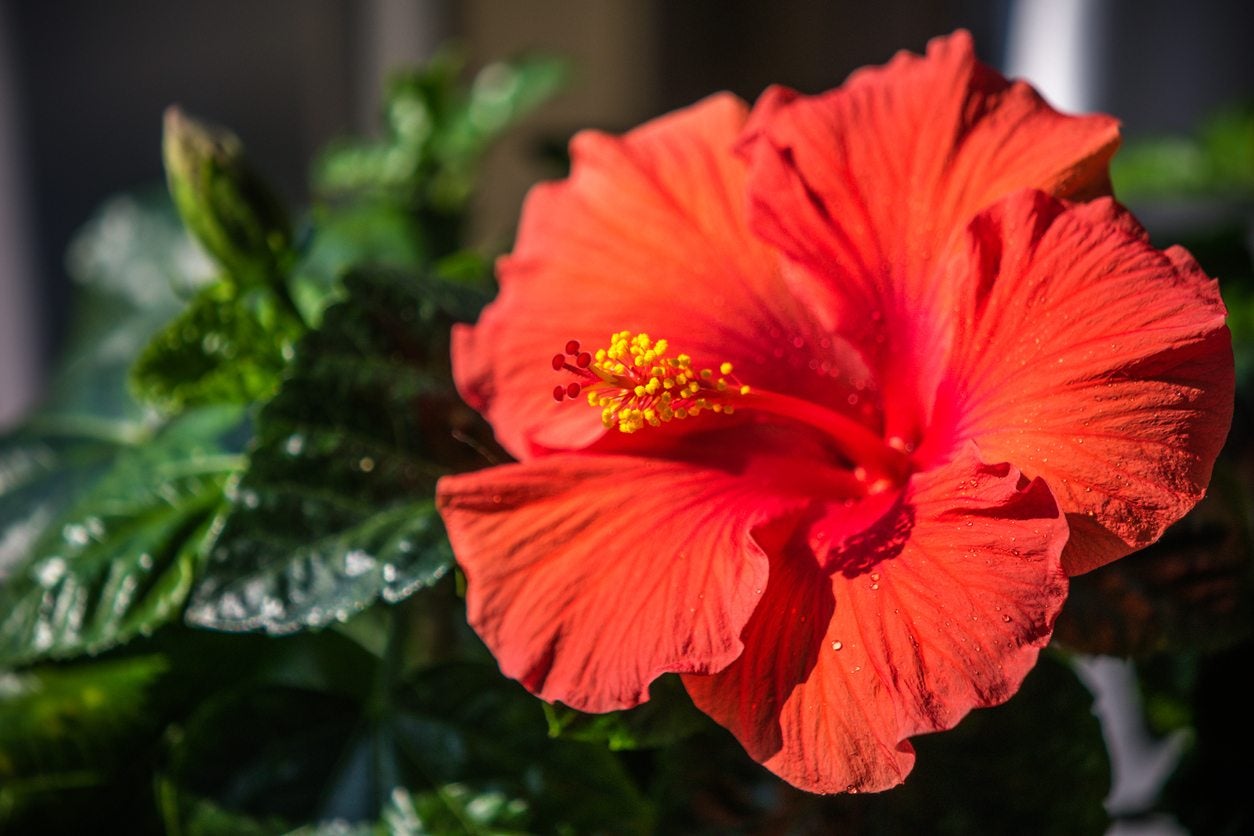Zone 8 Hibiscus Plants: Growing Hibiscus In Zone 8 Gardens


There are many different types of hibiscus. There are annual, hardy perennial, or tropical varieties. They are all in the same family, but each has a different cold tolerance and growth form, while flowers have similar characteristics. Growing hibiscus in zone 8 gives the gardener several forms from which to choose. The relatively mild annual temperatures and the infrequency of extreme cold means many forms of hibiscus can thrive in this region. Even the most tender tropical hibiscus will bloom profusely, but they may need special protection from possible freezes.
Hardy Hibiscus Varieties for Zone 8
Hibiscus are known for the brightly colored, showy blooms that appear all season long. The flowers conjure up images of sandy, white beaches and sunsets in hot, humid locale. Fortunately, even inlanders can enjoy these sultry flowers. The presence of several varieties that are hardy even in regions with sustained freezes means members of the Hibiscus family have a long range. You just need to pick the right hibiscus varieties for zone 8. The zone 8 gardener is lucky. The climate is much milder than northern regions and the choice of hibiscus is not limited to just the hardy types. Hibiscus in the Mallow family are considered the hardy hibiscus. Interestingly, these include such plants as okra and cotton. Hollyhock is an old-fashioned example of a hardy hibiscus variety too. The hardy hibiscus plants are native to the eastern U.S. and are noted for their tall stems, large leaves, and huge flowers. These are herbaceous perennials which die to the ground in winter and re-sprout in spring. Another well-known hibiscus, rose of Sharon, is a shrub form. This plant can withstand temperatures in zone 5 and is a prolific bloomer. Others include:
- Common mallow
- Swamp mallow
- Great Red hibiscus
- Confederate rose
- Red shield
- Scarlett Rose mallow
- Texas Star hibiscus
Tropical Zone 8 Hibiscus Plants
It is often so tempting to bring tropical plants into the landscape, especially in summer. Often, we need to consider these plants short-term visitors to the garden, as they will not survive plummeting temperatures. Tropical hibiscus may succumb to occasional freezes in zone 8 and should be kept in containers and moved indoors for winter or treated as annuals. These are some of the more prolific of the zone 8 hibiscus plants, even though they may not live long. Plants respond to long lazy days of summer by growing rapidly and producing copious blooms. Tropical hibiscus can reach up to 15 feet in height (5 m.) but are more commonly around 5 feet tall (1.5 m.). Most of these are hardy in zones 9 to 11 but may need some protection. The easiest way to tell if you have a hardy hibiscus is by color and petals. If your plant flowers in salmon, peach, orange, or yellow, or has double flowers, then it is likely a tropical. There are too many cultivars to list, but a hue and tone for almost any taste is available commercially.
Care for Zone 8 Hibiscus
In most cases, growing hibiscus in zone 8 requires little extra care other than providing well-draining soil, full sun, supplemental irrigation in hot summers, and a light nitrogen fertilizer in spring. The tropical varieties should be grown in pots, even if you choose to sink the pots in ground. That will prevent stress on the roots if you need to remove the pot if a hard freeze arrives. If you need to bring containers indoors, cut the plant back to 4 to 5 inches (10-13 cm.) from the soil. If you see any signs of insects, spray the plant with Neem oil. Any leaves left will likely yellow and fall off, but this is normal. Keep the container on the dry side by allowing soil to dry to the touch before watering. Gradually reintroduce the plant outdoors when all danger of frost has passed. Hardy species can be left alone and cut back with just some supplemental mulch applied around the root zone. These will merrily regrow in spring and begin to reward you with their show stopping blooms.
Sign up for the Gardening Know How newsletter today and receive a free copy of our e-book "How to Grow Delicious Tomatoes".

Bonnie Grant is a professional landscaper with a Certification in Urban Gardening. She has been gardening and writing for 15 years. A former professional chef, she has a passion for edible landscaping.